
Move aside Steven King, jellyfish are worse than any of your demons, worse than any Grade-B monster that’s graced the silver screen. Unlike The Blob, which can be stopped by freezing, you can’t kill them. Not with chemical repellents or biocides or nets or electric shocks or introducing species that eat jellyfish like the striped sea slug. If you shoot, stab, slash, or chop off part of a jellyfish, it can regenerate lost body parts within two days. Not even the past 5 major extinction events which killed up to 90% of all life on earth, killed off the jellyfish.
 Meanwhile they’re on a rampage, doing millions of dollars in damage clogging intakes of nuclear, coal, and desalination plants, killing millions of farmed fish, and destroying fishing nets with their sticky icky bodies.
Meanwhile they’re on a rampage, doing millions of dollars in damage clogging intakes of nuclear, coal, and desalination plants, killing millions of farmed fish, and destroying fishing nets with their sticky icky bodies.
The more we overfish, pollute, acidify and warm the ocean, create vast dead zones, and trawl ocean bottoms, the better the jellyfish do.
The oceans make the earth habitable for us. They generate most of the oxygen we breathe, stabilize temperatures, drive climate and weather, and absorb a third of the CO2 we’re emitting. Over 3 billion people depend on the oceans for their livelihoods; 2.6 billion depend on seafood as their main source of protein.
Most alarming of all, 40% of phytoplankton has died off globally since the 1950s – they’re not only at the base of the food chain, but they generate most of the oxygen we breathe, as well as absorb half of the carbon dioxide, and their increasing death rate will make the ocean get warmer even faster.
Why Jellyfish are taking over the world
Prolific, hard to kill, breed fast, and more – no wonder they’re so successful:
They’ve everywhere, spread around the world in ship ballast or sea currents.
Ubiquitous – from top to bottom of the ocean, from pole to pole, year-round.
Grow faster than other species to quickly take advantage of any food, and they’ll eat almost anything — copepods, fish eggs, larvae, flagellates. They eat past when they can keep consuming, spit food out, waste a great deal other creatures could have eaten. Even when they’re full, their tentacles keep capturing prey.
If there’s no food, jellyfish can consume their own body mass and get smaller and smaller until they find food again, and rapidly return to normal. Even when they grow smaller they can still reproduce.
Consume many times their body weight in high-value food but are of low-value themselves because they provide little energy, ounce for ounce, compared to the food they ate. So they have few predators.
When 2 weeks old they can lay 10,000 eggs a day that hatch 12-20 hours later
They reproduce many ways: massive orgies, fission, fusion, cloning, hermaphroditism, external fertilization, self-fertilization, copulation.
If they lose a body part, they can regenerate it within 2 days.
They are the “Last Man Standing” in eutrophication zones because they need less oxygen
Many species can tolerate any salinity level, from fresh water to salt water
They’ve survived ice ages, hothouse climates, all five mass extinctions, predators, competitors, and us.
Jellyfish in the oceans have been known to live over 10 years
Many of them avoid predators by long vertical migrations from the deep sea to the surface at night and back down again by daylight
They can wait a long time for the right conditions to bloom
Just as plants have seeds which can endure many years waiting for optimum conditions to grow, jellyfish have a seed-like state called a polyp that waits for good conditions, and can clone themselves to create armies of ‘seeds’ waiting to burst into jellyfish blooms seemingly overnight. Polyps don’t “grow up” to become jellyfish. They spawn what we think of as jellyfish – the medusa — which then mate sexually to produce polyps, which stick to rocks, shells, man-made structures, plastic, etc. Both the polyps and the medusa could be considered “immortal” – when a polyp dies it’s clones live on, and there is one species of jellyfish, where after it dies, its pieces turn back into polyps (“Logically, it would seem that other species probably do it too, but we have yet to identify others,” according to Gershwin in a reply to this book review).
Jellyfish are at the top of the food chain
That seems so wrong– a primitive brainless blob? But jellyfish eat much larger clams, crabs, starfish, snails, and fast, smarter fish and squid.
They’re also at the top because not much wants to eat them.
Worse yet, they outcompete other sea life by devouring the eggs and larvae of species that would have grown up to eat jellyfish larvae. It’s a double whammy since these larvae never grow up, leaving a lot more food for jellyfish to consume. A jellyfish bloom can clear the water of all eggs, larvae, copepods, and small plankton in less than a day. This makes it almost impossible for some overfished species to make a comeback.
We’re helping the jellyfish take over by overfishing
Many of the small fish that compete with jellyfish for the same food, such as anchovies and sardines, are being overfished and turned into farmed fish food, pet food, and fertilizer. We harvest a whopping 44% of these small fish at the base of the food chain, which are also what cod, snapper, tuna, and halibut feed on, which prevents the recovery of fish we’d much rather eat.
We’ve already fished out 90% of all large fish in the ocean. And it’s only a matter of time before we find the other 10% with sonar, radar, LORAN, GPS, and spotter aircraft.
The United Nations has predicted all commercial fish species will be extinct by 2048. In 2002 we were fishing 72% of fish stocks faster than they could reproduce. 90 fish stocks around the world have had no recovery in population even 15 years after they collapsed.
Few small fish left, few big fish left – that opens up a lot of space for jellyfish to move in and take over. We’re creating a feedback loop that favors jellyfish.
Worse yet, overfishing can create trophic cascades when we remove keystone predators. We’ve nearly driven 11 species of large sharks along the Atlantic coast into extinction. They kept the ray population in check, but now that they’re gone, the ray population has exploded, and they’re devouring almost a million tons of scallops, clams, and oysters a year. Fishermen only harvested 330 tons. The Chesapeake used to famous for shellfish, now it’s best known for its jellyfish (p261-263).
You’ve probably heard of bycatch – all the unwanted and unintended dolphins, turtles, fish and so on that are discarded, most so mangle they don’t survive when thrown back. I was unaware that tropical shrimp are the worst of the worst because they’re obtained by bottom trawling and have a bycatch of 125 to 830% more than the shrimp captured. In the Gulf of Mexico shrimp fishery 12,000,000 juvenile snappers and 6,000,000 pounds of sharks are discarded every year. Since most bycatch is unreported, these figures are probably too low. Further destroying the fish are the thousands of miles of “ghost nets” – the nets lost from boats that drift aimlessly still catching fish.
Jellyfish even eat other jellyfish, so when we’ve caught most of the fish, or otherwise destroyed them by dredging, ocean warming and acidification, pollution, dead zones, etc., jellyfish will still survive.
Trawling and Sewage favor jellyfish
Sewage provides nourishment for jellyfish since they can get 10 to 40% of what they need by absorbing nutrients through their skin. And there’s plenty of sewage for them. In just 7 days a 3,000 passenger cruise ship generates 210,000 gallons of sewage, a million gallons of gray water, 37,000 gallons of oil bilge water, 8 tons of solid waste. In the USA, animal feedlots produce 500 million tons of manure a year, 3 times as much as humans.
Bottom-trawls weigh thousands of tons and rake the seafloor for sole, halibut, cod, haddock, plaice, rockfish, rays, skates, prawns and son on, destroying corals and sponges as trawls rake across miles of seafloor, crushing what isn’t scooped up. The raking creates a fog of tiny particles. Fish can’t find their food in this dense fog of raked up particles or murky sewage, but guess who can….jellyfish, who just dangle their tentacles and it capture any food that drifts or swims into them.
Trawling dredges up toxic DDT, PCBs, hydrocarbons, mercury, radioactive particles, heavy metals, and plastics that add to eutrophication, destroy clams, scallops, bryozoans, tunicates, and other creatures. These substances, which had been buried in the sediment and removed from the food chain are released back again, and incorporated into the muscle, bone, blood, and fat of sea organisms.
Jellyfish don’t have these tissues, so they’re not much affected. Nor do they live long enough to store a high concentration of harmful toxins, or develop mutations or cancer.
Dredging creates many more areas for jellyfish polyps to attach to as pieces of plastic and other flotsam are dredged up, increasing the size of jellyfish blooms.
Jellyfish can take the heat
As climate change raises temperatures, the metabolic rate of all creatures rise, and they have to catch more food to stay alive.
The ocean has risen 1.8 F the past century, most of that the past 30 years, and may increase another 3.6 F over the next 100 years. In the ocean heat is even harder on organisms because warmer water has less oxygen. This means increased respiration which uses more energy and finding more food to eat. A creature that can’t respire fast enough will suffocate.
Warmer oceans are a dream come true for jellyfish – they can grow fast very quickly while other species are struggling. Phytoplankton blooms make even more food available. Jellyfish rates of reproduction increases and they can reproduce longer too.
Climate change also means far more unpredictable weather, another advantage for jellyfish, since they respond quickly to change and bloom explosively to cope. They’re the first to arrive and the last to leave. And jellyfish can tolerate a wide range of temperatures.
Jellyfish can even increase CO2 levels because
Their goo and poo are preferred by bacteria that emit high amounts of CO2.
Jellyfish displace fish, whose fecal pellets would have sunk to the bottom and sequestered CO2
We’re tipping the ecosystem in their favor
The more we damage and stress the ocean, the more likely the sedentary polyps will feel compelled to produce the next generation, the getaway medusa jellyfish who can escape the eutrophication, warming temperatures, changes in salinity, pollution, acidification, oil spills, or whatever else we’ve thrown at them. The medusa disperse to safer areas, and new areas, live to see another bloom, and eat and outcompete fish.
Dead zones, eutrophication, hypoxia favor jellyfish
Jellies can survive low oxygen conditions because they store oxygen in their tissues and breathe through their skin. They can swim in the top layer of water above and form a wall of slime that keeps fish out.
They can cause eutrophication by eating so many copepods that phytoplankton blooms erupt, die, and tilt the balance towards flagellate-based organisms, which jellyfish eat but fish don’t. And also their goo and poo favors microbes that respire a lot which generate CO2 and increase ocean acidification. Jellyfish can survive low oxygen levels better than most creatures.
The more jellyfish, the more jellyfish
As we create conditions that favor larger jellyfish blooms, their concentrations grow more dense, so when they release sperm and eggs the odds of contact and fertilization are greater.
And the greater the density of jellyfish, the more likely prey will be unable to escape. Nor will the small predators of jellyfish larvae be able to do so – the dense numbers of parent medusae will eat the small predators before their own larva can be consumed.
Larger jellyfish blooms makes even larger jellyfish blooms more likely, ratcheting up their ascent to dominance in the oceans.
Farmed fish won’t keep fish around – jellyfish kill them too
Jellyfish harm salmon farms through their mucous, bacteria, and stinging. The salmon waste and uneaten food also probably change the ocean to favor jellyfish and algal blooms.
Other jellyfish facts
- There are 1,500 known species of jellyfish, but probably quite a few more we haven’t identified yet
- They have no heart, brains, ears, heads, feet, gills, or bones
-They range from the size of a pea to 8 feet in diameter with tentacles that can be 200 feet long
- Kinds of jellies: moon, comb, pink meanies, rainbow, box, fire, sea wasps, sea nettles, sea gooseberries,Venus’s girdles, lion’s manes, purple people eaters, blubbers, snotties, agua vivas, blue bottles, the long stingy stringy thingy, etc.
-They’ve been here at least 565 million years practically unchanged, long before predators with shells or teeth evolved
-The Box Jellyfish is the world’s most venomous animal that can kill within 2 minutes. There are other lethal jellyfish as well.
Conclusion – We’ve turned the tide in favor of Jellyfish
This is one of the best books you can read about the myriad ways we’re destroying the ocean, which Gershwin has to explain so that she can then explain how that relates to how those factors affect jellyfish. Gershwin’s writing is witty and funny, making this grim topic easier to take. The natural history of jellyfish is amazing and bizarre. And despite this long book review, I’ve left out quite a bit, the story is far too complex to summarize — I hope you’ll read this book to learn more.
Even if we stopped overfishing, polluting, and so on, once we tip the ecosystem into one controlled by jellyfish, they will become the “new normal” and that will quite likely be impossible to change.
What a dismal future — an ocean of slimy, repulsive, stinging, sticky, lethal, spooky, scary, alien jellyfish. Bye-bye fish, oysters, shrimp, scallops, lobsters, Beluga caviar, abalone, sharks, whales, seals, sea lions, penguins, dolphins, sea otters, polar bears. Hello jelly-O.
The time when jellyfish rule is not far away, it could be in your lifetime, or your children’s lifetime. The climate and chemistry of the ocean is becoming like the Ediacaran ocean 565 million years ago, when jellyfish ruled the oceans for over 100 million years as the top predators.
In the last chapter, Gershwin writes that in the end, jellyfish are “also outcompeting the human race, because we depend on the oceans’ fish for our own food.”
Gershwin wrote this book assuming she’d have advice at the end of actions you could take to bring back the fisheries and keep jellyfish from dominating the oceans, but she ends the book saying it’s too late to do anything. Hold the presses — perhaps not, Lisa replied to this book review and said “I welcome thoughts that you or your readers may have toward saving the oceans and fixing the damage… the subject of my next book!”.
I like Gershwin’s honesty, and the willingness of the University of Chicago Press to publish her book, since most publishers won’t print a book that doesn’t have a happy ending (and also why our political and economic leaders deny or don’t talk about peak oil, climate change, and other insoluble problems.)
When will the fish, whales, dolphins, etc., return?
People have asked me when the fish would come back, since after all, they’re here now, they must have defeated the jellyfish in the past. That’s why you need to read this 344 page book. the ocean ecosystem is complex and Gershwin spends most of the book explaining how it works in order to then say how this relates to jellyfish. I’ve only reported on jellyfish part of what she wrote.
One important concept I didn’t cover was on low versus high-energy food chains, since that’s a big part of why the ocean is tipping in favor of the jellyfish, who do better in a low-energy system like the Ediacaran oceans hundreds of millions of years ago (read pages 288-344).
We’re returning the oceans to an Ediacaran state — warm oceans favor jellyfish, low energy food chains favor jellyfish, low oxygen favors jellyfish, ocean acidification favors jellyfish, billions of jellyfish consuming most fish eggs, larva, and juveniles favors jellyfish, ability to catch food in murky water favors jellyfish, their ability to bloom and grow faster than any other creature, humans removing most of the jellyfish predators and competitors from overfishing, the amazing adaptability of jellyfish, their being at the top of the food chain, and the synergy of all of these and the dozens of other factors above.
When this becomes a stable state, how do you get back?
“The Earth without us” gave me great hope. Because we’re at peak fossil fuels the climate change scenarios won’t be as bad as the worst forecasts (perhaps), without oil there will be only a billion people or less, who can’t do nearly as much harm without oil-powered vehicles and combustion engines.
A day will come when the earth cools, oceanic oxygen and pH levels go up, and fish and sea mammals will return. If they’ve survived, that is. The problem with an extinction like this 6th one we’re causing is that the hangover can last for millions of years before evolution refills the lost niches of extinct creatures, sigh.
Alice Friedemann
 ACBF calls to embrace the NSW's 'Improved Native Forest Management (INFM)' carbon method, for a 'transition to full plantation-based industry, sound good, but many forest campaign groups do not welcome this kind of announcement. That is because the government's INFM modelling can be manipulated to suit further logging under other guises, assuming outcomes minus robust science and evidence, and benefit those large industries to simply buy imagined carbon credits to keep polluting.
ACBF calls to embrace the NSW's 'Improved Native Forest Management (INFM)' carbon method, for a 'transition to full plantation-based industry, sound good, but many forest campaign groups do not welcome this kind of announcement. That is because the government's INFM modelling can be manipulated to suit further logging under other guises, assuming outcomes minus robust science and evidence, and benefit those large industries to simply buy imagined carbon credits to keep polluting.
 Nature conservation groups are questioning the motives behind the Victorian Government’s “comprehensive” review of Parks Victoria. The move is raising concerns about the future of Victoria’s popular national parks and reserves, whose integrity is vital for both nature conservation and community wellbeing. Environment Minister Steve Dimopoulos
Nature conservation groups are questioning the motives behind the Victorian Government’s “comprehensive” review of Parks Victoria. The move is raising concerns about the future of Victoria’s popular national parks and reserves, whose integrity is vital for both nature conservation and community wellbeing. Environment Minister Steve Dimopoulos 
 Worried about the plight of your local kangaroos? Kangaroos Alive is promoting this great way to help them, in a video featuring Mornington Peninsula ecologist Craig Thompson of
Worried about the plight of your local kangaroos? Kangaroos Alive is promoting this great way to help them, in a video featuring Mornington Peninsula ecologist Craig Thompson of  Jenny Warfe delivered this submission and spoke to it verbally at Planning Panels Victoria, Frankston hearing on C160fran Ammendment. The Amendment would mandate population growth-engineering and a mega city in Frankston, at the head of the Mornington Peninsula, on Port Phillip Bay. Port Phillip Conservation Council (PPCC) Inc.
Jenny Warfe delivered this submission and spoke to it verbally at Planning Panels Victoria, Frankston hearing on C160fran Ammendment. The Amendment would mandate population growth-engineering and a mega city in Frankston, at the head of the Mornington Peninsula, on Port Phillip Bay. Port Phillip Conservation Council (PPCC) Inc. Newly elected president of World Council of Non-Human Species addresses Humanity about the biodiversity crisis. Geoffrey the Giraffe also calls attention to plummeting number of giraffes. (Slava Abramovitch Unsplash)
Newly elected president of World Council of Non-Human Species addresses Humanity about the biodiversity crisis. Geoffrey the Giraffe also calls attention to plummeting number of giraffes. (Slava Abramovitch Unsplash) If you have ever been to the Department of Environment, Land, Water and Planning (DWELP) and asked questions, you would be well-aware that the native-animal department has almost no staff, that DWELP does not use the law to protect native animals, but prevents others from using it, due to legal lack of standing. At the same time, the Agriculture arm of DWELP enthusiastically issues permits to kill kangaroos and other native animals with almost no restriction or inspection, and quasi-imaginary
If you have ever been to the Department of Environment, Land, Water and Planning (DWELP) and asked questions, you would be well-aware that the native-animal department has almost no staff, that DWELP does not use the law to protect native animals, but prevents others from using it, due to legal lack of standing. At the same time, the Agriculture arm of DWELP enthusiastically issues permits to kill kangaroos and other native animals with almost no restriction or inspection, and quasi-imaginary  For four days now my old body is fighting the COVID19. In this I had joined some 360 million fellow human beings. I was reluctant to write on this for many reasons including that the experiences of many others is far more poignant. Two faculty members at the university and two close relatives andseveral friends lost their lives already tp this virus. Dozens of friends and relatives also survived it and described the experience to me in detail.
For four days now my old body is fighting the COVID19. In this I had joined some 360 million fellow human beings. I was reluctant to write on this for many reasons including that the experiences of many others is far more poignant. Two faculty members at the university and two close relatives andseveral friends lost their lives already tp this virus. Dozens of friends and relatives also survived it and described the experience to me in detail.
 Waleed Aly (
Waleed Aly ( "Only the Liberal Party will protect the amenity and character of our neighbourhoods and rural hinterland," says Russell Joseph, Liberal Candidate for Nepean. We don't often publish statements from the major parties, but this is the first one we know of that looks at protecting the Mornington Peninsula. The Peninsula is an incredibly biodiverse part of South-Eastern Australia, hardly explored to date in terms of paleontology, rapidly losing its native fauna and flora. The undeniable fact that governments since Jeff Kennett have promoted destructive population growth here makes any policy to protect it extremely important. We will publish statements from any other political party that has a plan to protect the Mornington Peninsula from overpopulation.
"Only the Liberal Party will protect the amenity and character of our neighbourhoods and rural hinterland," says Russell Joseph, Liberal Candidate for Nepean. We don't often publish statements from the major parties, but this is the first one we know of that looks at protecting the Mornington Peninsula. The Peninsula is an incredibly biodiverse part of South-Eastern Australia, hardly explored to date in terms of paleontology, rapidly losing its native fauna and flora. The undeniable fact that governments since Jeff Kennett have promoted destructive population growth here makes any policy to protect it extremely important. We will publish statements from any other political party that has a plan to protect the Mornington Peninsula from overpopulation.
 Most people lack the basic education in arithmetic, geography and logistics to judge whether they are overpopulated, to compare population densities between regions, to factor in import and export, and, most importantly, to understand how waste-disposal requires natural 'services' or to understand that they are themselves, microbiologically, a part of nature, but that each one of us now is extended into a kind of per capita earth moving and processing factory for creating dead stuff. This article evolved from a response to a quora question and appears in its original form here: [
Most people lack the basic education in arithmetic, geography and logistics to judge whether they are overpopulated, to compare population densities between regions, to factor in import and export, and, most importantly, to understand how waste-disposal requires natural 'services' or to understand that they are themselves, microbiologically, a part of nature, but that each one of us now is extended into a kind of per capita earth moving and processing factory for creating dead stuff. This article evolved from a response to a quora question and appears in its original form here: [
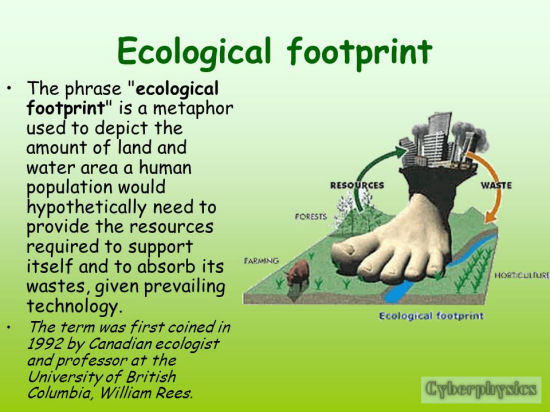
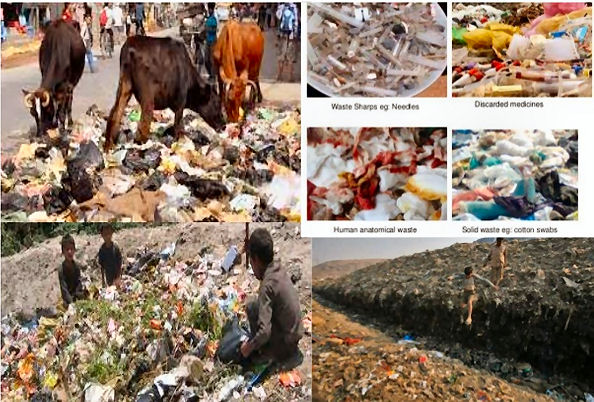
 There has been recent media coverage of efforts by the Australian government, in concert with the Australian Kangaroo products industry, to overturn an impending ban on the importation of Kangaroo products to California. The trade in Kangaroo products has been largely in the form of leather products. Aside from ethical issues surrounding the underhandedness of the Australian government’s interference in the Californian legislature on this issue, these events raise broader ethical issues about ongoing attempts to commercialize the harvesting of Australian wildlife, including for international trade.
There has been recent media coverage of efforts by the Australian government, in concert with the Australian Kangaroo products industry, to overturn an impending ban on the importation of Kangaroo products to California. The trade in Kangaroo products has been largely in the form of leather products. Aside from ethical issues surrounding the underhandedness of the Australian government’s interference in the Californian legislature on this issue, these events raise broader ethical issues about ongoing attempts to commercialize the harvesting of Australian wildlife, including for international trade. Is Environmentalism in Denial? [For details of this debate, see
Is Environmentalism in Denial? [For details of this debate, see 
 Jill Quirk of Sustainable Population Australia (SPA), Victorian and Tasmanian Branch, writes about the many problems of Plan Melbourne. Indeed there are so many problems that it is crazy to go ahead. But most of us realize that the Planners and Ministers behind Plan Melbourne intend to just go on driving bulldozers until something bigger stops them or they run out of oil. There is no plan B and so no room to listen to comment. This is a real problem for the rest of us because we live here.
Jill Quirk of Sustainable Population Australia (SPA), Victorian and Tasmanian Branch, writes about the many problems of Plan Melbourne. Indeed there are so many problems that it is crazy to go ahead. But most of us realize that the Planners and Ministers behind Plan Melbourne intend to just go on driving bulldozers until something bigger stops them or they run out of oil. There is no plan B and so no room to listen to comment. This is a real problem for the rest of us because we live here.  Move aside Steven King, jellyfish are worse than any of your demons, worse than any Grade-B monster that’s graced the silver screen. Unlike The Blob, which can be stopped by freezing, you can’t kill them. Not with chemical repellents or biocides or nets or electric shocks or introducing species that eat jellyfish like the striped sea slug. If you shoot, stab, slash, or chop off part of a jellyfish, it can regenerate lost body parts within two days. Not even the past 5 major extinction events which killed up to 90% of all life on earth, killed off the jellyfish.
Move aside Steven King, jellyfish are worse than any of your demons, worse than any Grade-B monster that’s graced the silver screen. Unlike The Blob, which can be stopped by freezing, you can’t kill them. Not with chemical repellents or biocides or nets or electric shocks or introducing species that eat jellyfish like the striped sea slug. If you shoot, stab, slash, or chop off part of a jellyfish, it can regenerate lost body parts within two days. Not even the past 5 major extinction events which killed up to 90% of all life on earth, killed off the jellyfish. Meanwhile they’re on a rampage, doing millions of dollars in damage clogging intakes of nuclear, coal, and desalination plants, killing millions of farmed fish, and destroying fishing nets with their sticky icky bodies.
Meanwhile they’re on a rampage, doing millions of dollars in damage clogging intakes of nuclear, coal, and desalination plants, killing millions of farmed fish, and destroying fishing nets with their sticky icky bodies.
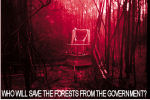 AS I WRITE, the bulldozers and chainsaws are brutalising another superb stand of ancient forest not far from where I am just out of Orbost, south-eastern Victoria. (This article is an extract from one on the ABC. See inside for link.)
AS I WRITE, the bulldozers and chainsaws are brutalising another superb stand of ancient forest not far from where I am just out of Orbost, south-eastern Victoria. (This article is an extract from one on the ABC. See inside for link.)

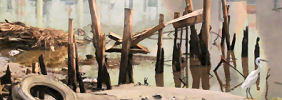 Queensland clearing laws could kill over 400 million native animalsl The Commonwealth must act to stop the destruction.
Queensland clearing laws could kill over 400 million native animalsl The Commonwealth must act to stop the destruction.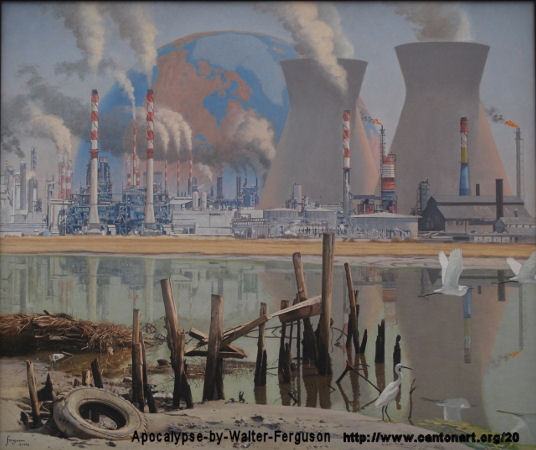 More about the upcoming 2013 environmental exhibition containing this painting, at end of this article under "Notes".
More about the upcoming 2013 environmental exhibition containing this painting, at end of this article under "Notes".

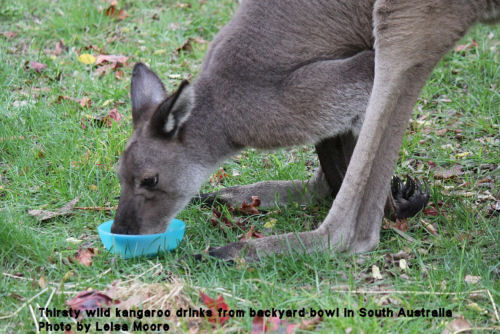 SPA National President, Ms Jenny Goldie, says that water is essential for all life, not just for humans.
SPA National President, Ms Jenny Goldie, says that water is essential for all life, not just for humans. Here comes an ATV -- second time today
Here comes an ATV -- second time today

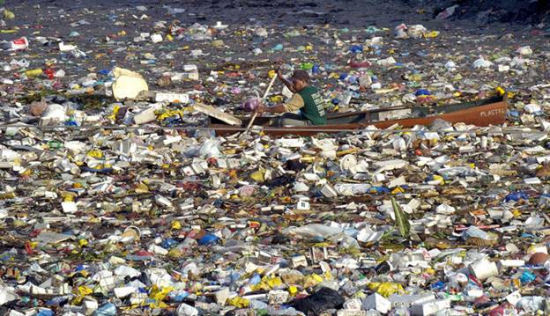

 Kelvin Thomson, MP for Wills, has written to Prime Minister Gillard, asking her to consider and respond to the concerns of constituents about planned changes to the federal environment act. Have any other ministers done this? We would like to hear from them if so.
Kelvin Thomson, MP for Wills, has written to Prime Minister Gillard, asking her to consider and respond to the concerns of constituents about planned changes to the federal environment act. Have any other ministers done this? We would like to hear from them if so.  September is Biodiversity Month and its purpose is to promote the importance of protecting, conserving and improving biological diversity in Australia and globally. Australia has between 600,000 and 700,000 species, many of which are endemic.Human activities are reducing genetic, species and ecosystem biodiversity in Australia and population growth is a major driver, according to Sustainable Population Australia Inc. (SPA)
September is Biodiversity Month and its purpose is to promote the importance of protecting, conserving and improving biological diversity in Australia and globally. Australia has between 600,000 and 700,000 species, many of which are endemic.Human activities are reducing genetic, species and ecosystem biodiversity in Australia and population growth is a major driver, according to Sustainable Population Australia Inc. (SPA)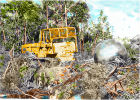 The Growling Grass Frog, one of the largest frog species in Australia, was previously widespread across Victoria. They are now endangered. Southern Brown Bandicoots once occurred commonly in the wider Frankston area (pre-1970s). They have rapidly declined and are now restricted to isolated remnant habitat patches. They have little chance of long term survival against the economic benefits of population growth. Without robust ecosystems, with each natural species contributing its part to the web of life, we end in a barren, artificial and sterile, wastelands. (First posted
The Growling Grass Frog, one of the largest frog species in Australia, was previously widespread across Victoria. They are now endangered. Southern Brown Bandicoots once occurred commonly in the wider Frankston area (pre-1970s). They have rapidly declined and are now restricted to isolated remnant habitat patches. They have little chance of long term survival against the economic benefits of population growth. Without robust ecosystems, with each natural species contributing its part to the web of life, we end in a barren, artificial and sterile, wastelands. (First posted

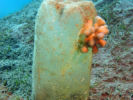 CAIRNS, Australia -- International Coral Symposium. "The impacts of a warming climate on reefs is not a future event. Complex changes have already begun that could fundamentally change what reefs look like in the future." Picture: Coral growing on plastic bottle
CAIRNS, Australia -- International Coral Symposium. "The impacts of a warming climate on reefs is not a future event. Complex changes have already begun that could fundamentally change what reefs look like in the future." Picture: Coral growing on plastic bottle Picture: Coral faded through stress.
Picture: Coral faded through stress. Picture: Tires litter the ocean floor.
Picture: Tires litter the ocean floor. CO2 Group's Chief CEO, Andrew Grant says that anthropogenic climate change science is quite simple really: "It's a function of increased population on the earth." Candobetter.net received the following as a press release today. We obviously like the idea of wildlife corridors connecting national parks. By the same token, nothing in the corporate or the government area can be taken at face value. Until the corridors are established; until we can see that more is not taken away by related interests somewhere else, we have to remain cautious. Nonetheless, on face value, this is cheering news. So is the Chief CEO of CO2 Group's attitude to human population growth and carbon emissions.
CO2 Group's Chief CEO, Andrew Grant says that anthropogenic climate change science is quite simple really: "It's a function of increased population on the earth." Candobetter.net received the following as a press release today. We obviously like the idea of wildlife corridors connecting national parks. By the same token, nothing in the corporate or the government area can be taken at face value. Until the corridors are established; until we can see that more is not taken away by related interests somewhere else, we have to remain cautious. Nonetheless, on face value, this is cheering news. So is the Chief CEO of CO2 Group's attitude to human population growth and carbon emissions.
 The current system of protection is failing Australian wildlife. Too little too late. Does legislation claiming to protect really cause habitat destruction? Current legislation let wildlife numbers fall too low, creating genetic bottlenecks that reduce long term chance of species survival. Even the largest national park is just a gene puddle, rather than a gene pool, if it is not connected to other habitat.
The current system of protection is failing Australian wildlife. Too little too late. Does legislation claiming to protect really cause habitat destruction? Current legislation let wildlife numbers fall too low, creating genetic bottlenecks that reduce long term chance of species survival. Even the largest national park is just a gene puddle, rather than a gene pool, if it is not connected to other habitat.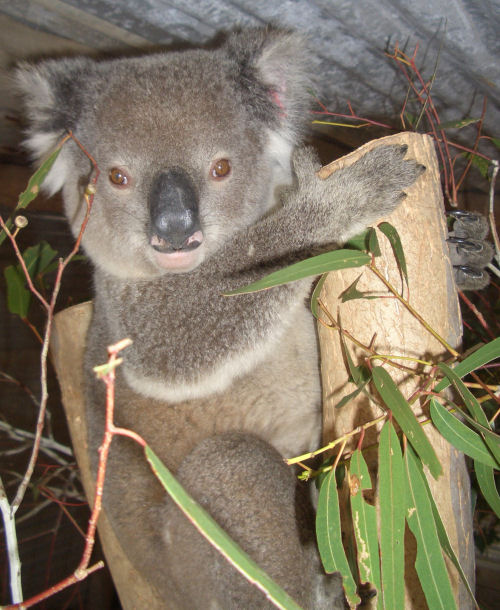 Photo of Koala Todd. James Fitzgerald looked after Todd for 3 months last year. Todd was found starving to the north of Cooma NSW, in open farmland without a gum tree in sight. A young dispersing male, he was looking for a new population to join but with so much habitat cleared he ended up lost in open grassland, underweight, dehydrated and starving. After Todd regained weight and was cleared by the Vet he was successfully released back into the wild on 30 November 2011.
Photo of Koala Todd. James Fitzgerald looked after Todd for 3 months last year. Todd was found starving to the north of Cooma NSW, in open farmland without a gum tree in sight. A young dispersing male, he was looking for a new population to join but with so much habitat cleared he ended up lost in open grassland, underweight, dehydrated and starving. After Todd regained weight and was cleared by the Vet he was successfully released back into the wild on 30 November 2011. "Minister Burke has ruled out protection for all koalas and we are concerned these northwest NSW koala populations may be left off the threatened species list, even while their populations are falling dangerously low." Zoologist David Paull: 75 per cent decline in the relative abundance of koalas in the Pilliga from 1993 to 2011. Estimates only 500 to 2000 koalas left in the area. “The spread of mines and gas wells, tree kills from coal seam gas spills and increased vehicles through the Pilliga Forest will likely put extra strain on these already declining koala populations." Wilderness Society, 29 April 2012.(This article elevates to an article a comment "Media Release - The Wilderness Society on Koalas," posted by Bandicoot on April 29-2012.)
"Minister Burke has ruled out protection for all koalas and we are concerned these northwest NSW koala populations may be left off the threatened species list, even while their populations are falling dangerously low." Zoologist David Paull: 75 per cent decline in the relative abundance of koalas in the Pilliga from 1993 to 2011. Estimates only 500 to 2000 koalas left in the area. “The spread of mines and gas wells, tree kills from coal seam gas spills and increased vehicles through the Pilliga Forest will likely put extra strain on these already declining koala populations." Wilderness Society, 29 April 2012.(This article elevates to an article a comment "Media Release - The Wilderness Society on Koalas," posted by Bandicoot on April 29-2012.)
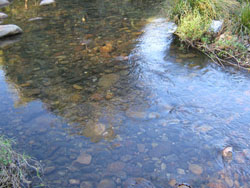
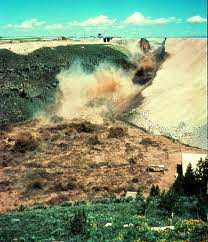
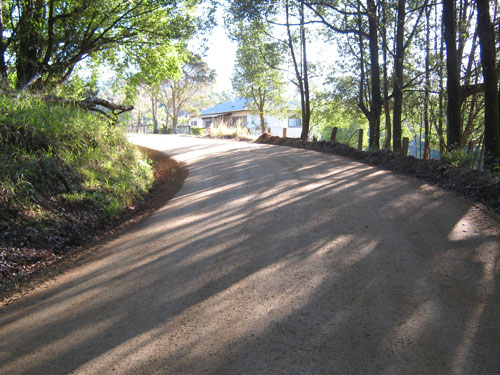
 NSW Department of Health has approval to build a $2.5 million health centre for South Tweed Coast residents in Pottsville. Locals are currently on a waiting list to see a doctor so the need is urgent. The only problem is a critical koala food tree has been in the way of their planned parking lot. Tweed Coast koalas (with less than 144 remaining) are predicted to become locally extinct within 5 years due to developments taking up koala real estate. The question is: are koalas more important or are people more important? Or can people co-exist with koalas in the suburbs? In this case, sadly the koalas lost out .... once again.
NSW Department of Health has approval to build a $2.5 million health centre for South Tweed Coast residents in Pottsville. Locals are currently on a waiting list to see a doctor so the need is urgent. The only problem is a critical koala food tree has been in the way of their planned parking lot. Tweed Coast koalas (with less than 144 remaining) are predicted to become locally extinct within 5 years due to developments taking up koala real estate. The question is: are koalas more important or are people more important? Or can people co-exist with koalas in the suburbs? In this case, sadly the koalas lost out .... once again. 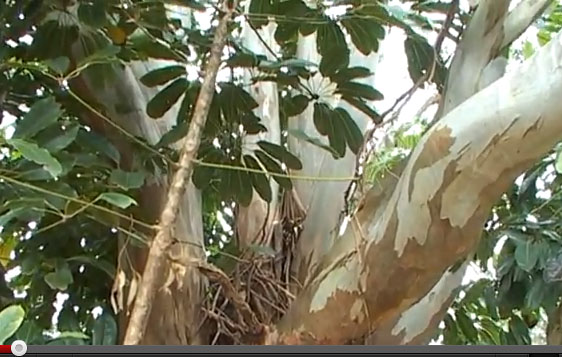
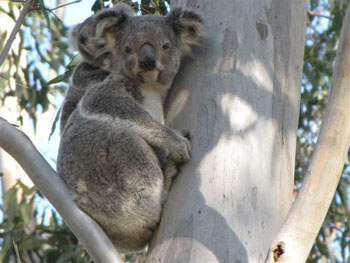
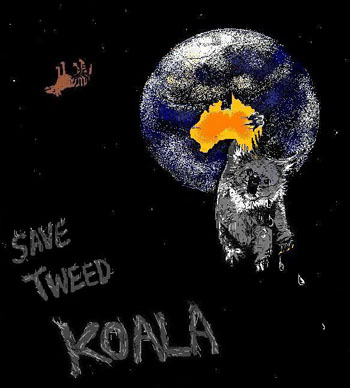
Recent comments